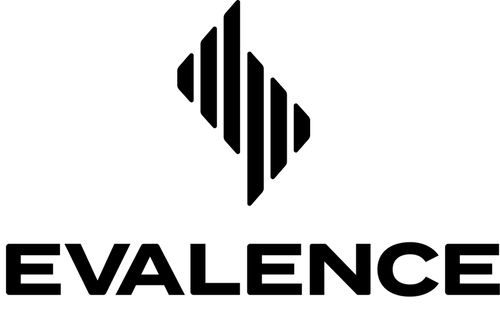Zero-Emission Vehicle Infrastructure Program (ZEVIP) 🇨🇦
The Government of Canada is investing $680 million to help deploy EV chargers where Canadians live, work, and play.
Who is ZEVIP for?
The Zero-Emission Vehicle Infrastructure Program (ZEVIP) is a broad program aimed at making EV charging more accessible for Canadians coast to coast. The initiative is administered by Natural Resources Canada (NRCan) and is planned to run until 2027. The program offers up to a 50% financial contribution to help deploy EV chargers in the following use cases or "streams":
-
Public Places: including but not limited to service stations, retail, restaurants, arenas, libraries, medical offices, park and ride, etc.
-
On-Street: EV charging deployed by local governments along public streets.
-
Workplaces: any location where employees perform duties related to their job.
-
Light, Medium and Heavy-Duty Vehicle Fleets: including fleets of taxis, car rentals, municipal vehicles, car sharing, last-mile delivery trucks, school buses, refuse trucks, public utility vehicles, etc.
-
Multi-Unit Residential Buildings (MURBs): any residential building with at least three (3) dwelling units.
To learn more about how ChargeLab software works in any of the scenarios above, visit our use cases page.
The most important nuance of ZEVIP is that it is a multi-phase, RFP-based program. While the overall program addresses many use cases, specific RFPs will address different use-cases at different times. If your business is seeking funding to deploy workplace EV chargers and you apply to the fleet RFP, your application will be rejected—and vice versa.
Here is a detailed breakdown of the past, current, and planned future rounds of ZEVIP:
| RFP | Launch Date | Submission Deadline | Status | Focus |
|---|---|---|---|---|
| ZEVIP round 1 | Jun 2019 | Sep 2019 | Closed | Public Places and On-Street |
| ZEVIP round 2 | Feb 2020 | Jun 2020 | Closed | MURBs, Workplaces, and Light-Duty Fleets |
| ZEVIP round 3 | Sep 2020 | Dec 2020 | Closed | Third-party delivery agents* |
| All Streams 2021 | Mar 2021 | Jun 2021 | Closed | Public Places, On-Street, MURBs, and Workplaces |
| Strategic Projects 2021 | Apr 2021 | Jul 2021 | Closed | Light, Medium and Heavy-Duty Vehicle Fleets; Mass Transit |
| Third Party Delivery 2021 | Aug 2021 | Nov 2021 | Closed | Third-party delivery agents* |
| All Streams 2022 | Feb 2022 | Aug 2022 | Closed | Public Places, On-Street, MURBs, and Workplaces |
| All Streams 2024 | July 2, 2024 | September 19, 2024 | Now open | Public Places, On-Street, MURBs, and Workplaces |
| All Streams 2025 | Spring 2025 | TBD | Planned | Public Places, On-Street, MURBs, and Workplaces |
*Third-party delivery RFPs will focus on eligible Delivery Organizations to distribute a component of the ZEVIP funding to Ultimate Recipients to install electric vehicle charging infrastructure projects in public places, on-street, in multi-unit residential buildings, at workplaces, or for light-duty vehicle fleets.
How does it work?
Natural Resources Canada releases an Applicants Guide at the start of each ZEVIP round. Organizations have until the submission deadline to put together a detailed project proposal. After a review period, NRCan will send notices of funding decisions to app applicants.
Successful applicants will receive a Letter of Conditional Approval and shortly afterwards sign a Contribution Agreement with NRCan. Each round of ZEVIP has different requirements for minimum and maximum project size, deployment timeline, and supported use cases.
What does it cover?
For accepted ZEVIP projects, NRCan contributes 50% of Total Project Costs up to a maximum per-charger amount. Eligible costs include site design, project management, EV chargers, installation costs, licenses/permits, and other direct deployment costs.
For most ZEVIP RFPs, NRCan contributions are conditionally repayable. If you profit from EV chargers funded by the program, you must repay NRCan's contribution on a pro-rata basis.
The maximum funding per type of EV charger is as follows:
| Type of Infrastructure | Output Power | Maximum Funding |
|---|---|---|
| Level 2 charger | 3.3 kW to 19.2 kW | $5,000 per port |
| DC fast charger | 20 kW to 49 kW | $15,000 per fast-charger |
| DC fast charger | 50 kW to 99 kW | $50,000 per fast-charger |
| DC fast charger | 100 kW to 199 kW | $75,000 per fast-charger |
| DC fast charger | 200 kW and above | $100,000 per fast-charger |
Disclaimer
ZEVIP is a competitive program administered by NRCan. ChargeLab is not a delivery agent of NRCan and has no influence over the ZEVIP selection process.
For the most comprehensive information on ZEVIP, check the official webpage: https://www.nrcan.gc.ca/energy-efficiency/transportation-alternative-fuels/zero-emission-vehicle-infrastructure-program/21876
Get help with your ZEVIP application
Our turnkey partners specialize in the supply and installation of EV chargers powered by ChargeLab's back-end software. The Canadian partners listed below have experience evaluating projects for ZEVIP eligibility and supporting site hosts throughout the ZEVIP application process.
Click on a card below to visit a turnkey provider's website. Contact these providers to learn about their ZEVIP offering.






